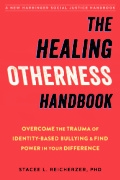My lesson in Black women’s self determination skills began during high school. You know, the place where it’s hard to feel a sense of belonging? Being a kid who was different, way different, I congregated with others who felt like outsiders. Some were going through normal adolescent rebellion against problems at home or in school. Others had emotional and psychological difficulties that would cascade into serious mental health disorders later in their lives.
Then, there was Tee.
Tee was one of very few African-American students at our high school on the northeast side of San Antonio in the 1980s. When we met in Mr. Merrick’s Biology class, we hit off, discovering a shared love of music and movies, including the fact that we were probably the only kids at MacArthur High who’d seen Prince’s “Under the Cherry Moon” twice. She was warm and genuine, and way too together to abuse alcohol or drugs.
I didn’t think about it much at the time, but wonder now how it might have been for her to go to an almost all-white school in south Texas during the 1980s. I imagine her mother telling her something like, “remember that no matter what anyone says to you, you are as smart and capable as they are. Don’t let their ignorance bring you down.”
This is the thing that I’ve since known African-American mothers to teach their children particularly well. They all know that the day will come when someone tries to degrade their child for having brown skin, either directly through a hate-based slur, or indirectly, by questioning their capability.
The wisest among them also know that one’s dignity and worth comes from within, nurtured by a deep and abiding faith in something greater. That faith is Honey in the Rock*, an unshakable and abiding sense of sweet, pure self-truth that can’t be broken by white supremacy or any other force that’s made by man.
It is that Honey in the Rock that defines what I recognize to be the self-determination of Black women. And though I was raised as a white male by parents who didn’t know to prepare me for being a kid who was different, I knew that I too needed to find my own self determination skills.
Kinships and friendships happen in ways that nobody can explain. They’re just there.
So it was when I started my first full-time job. I listened up when Stephanie and LaFonda asked how it was that only white women from Africa ever won Miss Universe (Miss Namibia won that year), and why the only Black woman who ever appeared in Vogue magazine (Naomi) wore extensions to resemble a white woman’s beauty ideal of long hair.
And I came to wonder the same thing.
So it was when I transferred to Dallas. I observed it when an Olive Garden waitress became brusque and rude, providing an entirely different level of service when my friend Angela returned to the table from the restroom. The waitress had been very pleasant to me when I was alone, probably assuming that my dining companion was white.
And I came to understand that white people really did treat Black women differently.
So it was, as I read the works of Zora Neal Hurston, Toni Morrison, Alice Walker, Audre Lorde, Angela Davis, bell hooks, Assata Shakur, Patricia Hill-Collins, Barbara Smith, Safiya Bukhari, and Gwendolyn Brooks.
And I realized that the very strategies these women used for resisting the assaults to their hearts and minds could be my own. I came to know my own Honey in the Rock.
For the very ability to carry one’s head high and maintain a deep and abiding faith in something bigger, higher, greater requires a beginning in which we are able to name and become clear about the nature of injustice in our lives. The systems of white supremacy and transphobia that exist to diminish our strength and possibilities, while sociohistorically and culturally very different, rely on the same tools.
Shame. Humiliation. Attempting to degrade our worth and lessen our humanity by casting us in the role as less than. Different. Other. These are the tools that are used against us.
When we begin to understand these tools, they can no longer harm us. We come to know our strength, and we turn to our sisters in struggle to remind them of theirs. And much like the guidance that I imagined was given to Tee by her mother, we tell each other, “remember that no matter what anyone says to you, you are as smart and capable as they are. Don’t let their ignorance bring you down.”
*”Honey in the Rock” was a term I initially encountered in Alice Walker’s work. It’s a widely-used reference with at least one spiritual hymn named after it. There’s also a wonderful African-American a cappella group called Sweet Honey in the Rock who uses song to convey both historical and present-day human rights struggles. Check them out at http://sweethoneyintherock.org/about/


